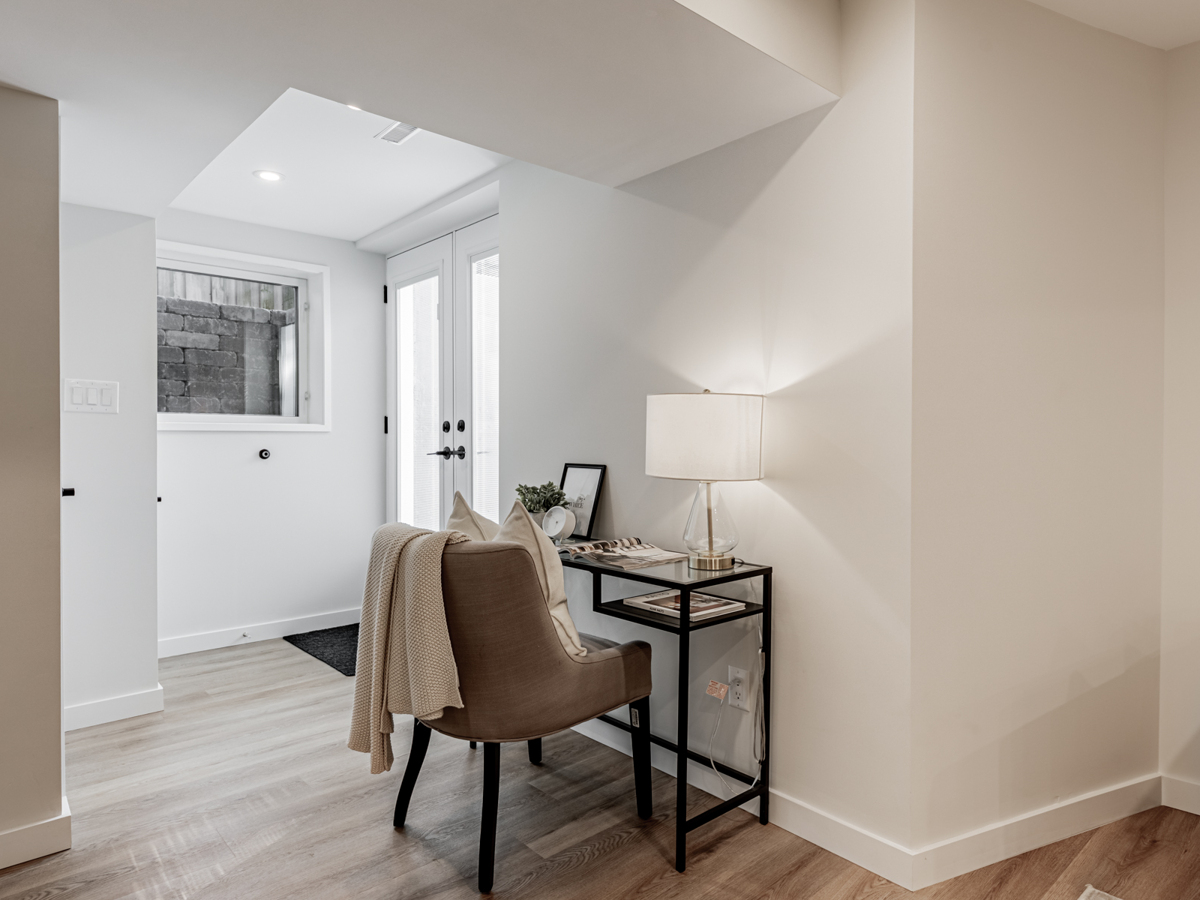What’s the Approximate Cost to Finish a Basement?
Approximate Cost to Finish a Basement Finishing a basement is one of the most effective ways to increase your home’s usable space without the expense...
4 min read
Quacy Barry Sep 2, 2024 7:30:13 PM

Table of Contents
Renovating a basement is a valuable investment that can create more living space and boost your home's overall value. Home renovation projects can be expensive. Many homeowners may need help with money to pay for their projects. Basement renovation financing can help you achieve your dream space without compromising your budget or delaying your plans.
Financing helps you begin your renovation sooner and lets you pay for it over time instead of all at once. Finding the right financing for your renovation can make the process easier. This applies to both small updates and large remodels. It can also help reduce stress.
Financing your basement renovation lets you create a space that fits your needs. It also improves your home’s functionality.
If you want to add a legal basement apartment, a home office, or an entertainment area, financing can help. It gives you the freedom to pick good materials and finishes. These choices will last a long time.
Understanding the Costs of Basement Renovation
Before exploring financing options, it’s essential to understand the costs associated with basement renovations. Knowing what to expect can help you set a realistic budget and determine how much financing you’ll need.
The cost of fixing up a basement can change a lot. It depends on the size of the area. The work that we need to do and the quality of materials we use also determine the outcome. Here’s a general breakdown of what you might expect:
Several factors can affect the cost of renovating a basement, including:
Setting a clear and realistic budget is crucial for the success of your renovation project. Start by determining your must-have features and separating them from nice-to-have options. Consider getting multiple quotes from contractors to ensure you have an accurate estimate of costs.
There are several basement financing options available to help you cover the cost to finish a basement. Each option has its pros and cons, so it’s important to choose one that aligns with your financial situation and goals.
A Home Equity Line of Credit (HELOC) allows you to borrow against the equity in your home. It’s a flexible financing option because you can borrow as much or as little as you need, up to a certain limit. HELOCs usually have lower interest rates than other loans. This makes them a good option for big home renovation projects.
A home equity loan provides a lump sum of money, which you repay over a fixed term with fixed interest rates. This option is ideal if you have a clear understanding of your renovation project costs upfront.
Personal loans are unsecured loans that you can use for any purpose, including home renovations. They usually have higher interest rates than HELOCs or home equity loans, but you don’t need to use your home as collateral.
Some basement remodelling companies offer financing programs that allow you to pay for your renovation in installments. These plans can be convenient, especially if you prefer to work with a specific contractor.
Credit cards can be a good choice for small renovation costs. This is especially true if you can pay off the balance quickly. Some homeowners use credit cards to pay for renovation parts, like materials. However, they should be careful about high interest rates.
When choosing a financing option, compare interest rates and repayment terms carefully. HELOCs and home equity loans often have lower interest rates, making them a better choice for big projects than personal loans or credit cards. The terms and conditions can change. It is important to know the total cost of borrowing before you decide.
Consider how each financing option will affect your monthly payments. Fixed-rate loans provide predictable payments, making it easier to plan your finances. In contrast, variable-rate loans like HELOCs can fluctuate, potentially leading to higher payments over time.
If you prefer to pay off your renovation quickly, a short-term loan or credit card may be suitable. Long-term financing options like a HELOC or home equity loan may be better if you want lower monthly payments.
Qualifying for renovation financing depends on several factors, including your credit score, income, and existing debt. Here’s what you need to know:
Your credit score plays a significant role in determining your eligibility for financing. Lenders usually want a good credit score to approve loans. You often need a score of 650 or higher for better rates.
Lenders will check your income and debt-to-income ratio to see if you can handle more debt. A lower DTI ratio indicates a stronger ability to repay the loan, increasing your chances of approval.

Approximate Cost to Finish a Basement Finishing a basement is one of the most effective ways to increase your home’s usable space without the expense...
.jpg)
The 6 Best Flooring Options for Basements of 2024

Why Hiring the Right Basement Finishing Company Matters A basement renovation is a significant investment that can transform your home, adding...